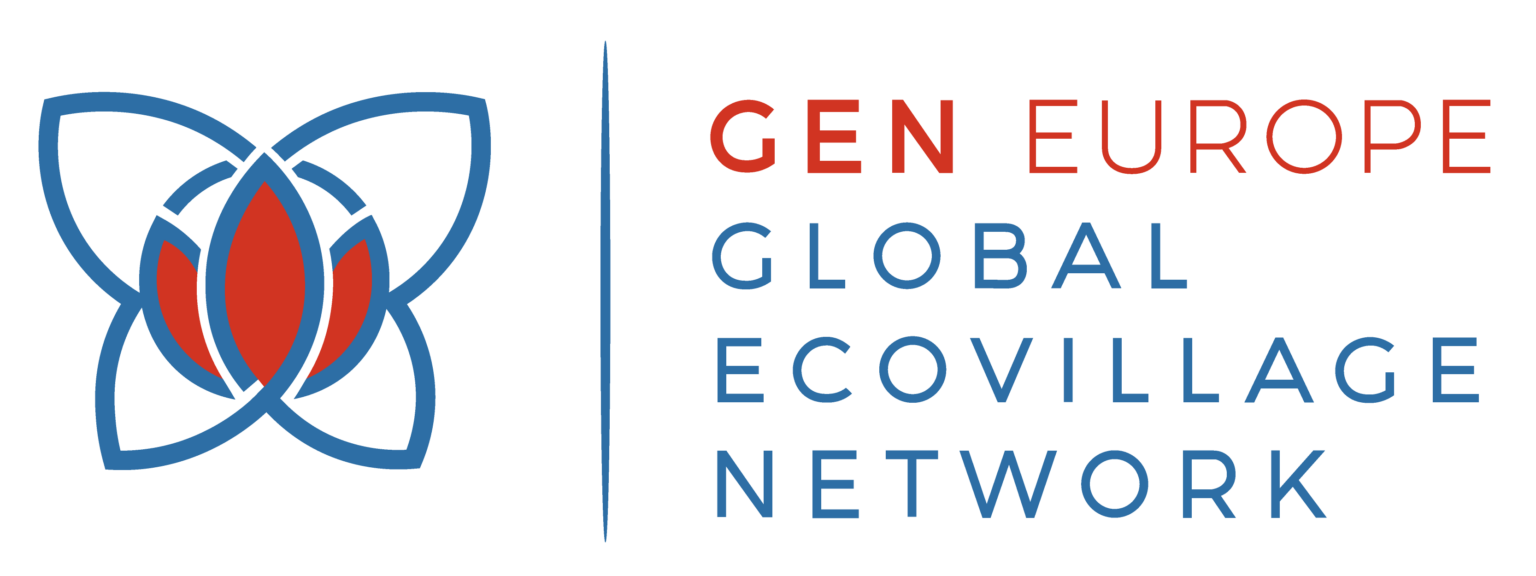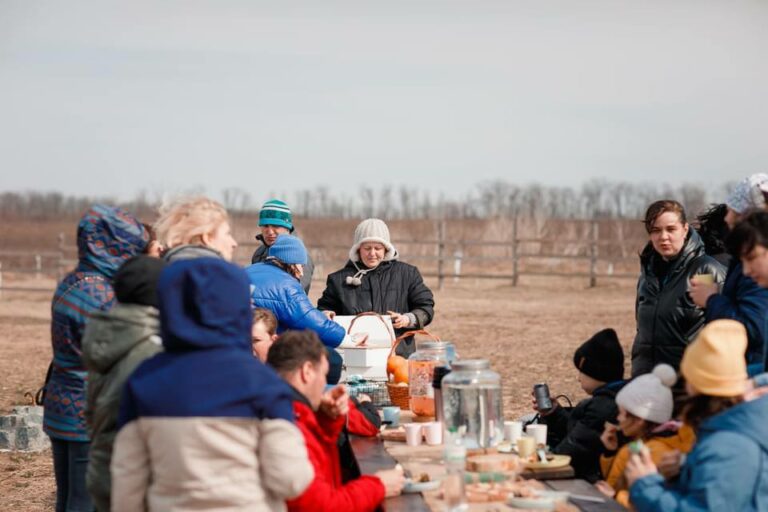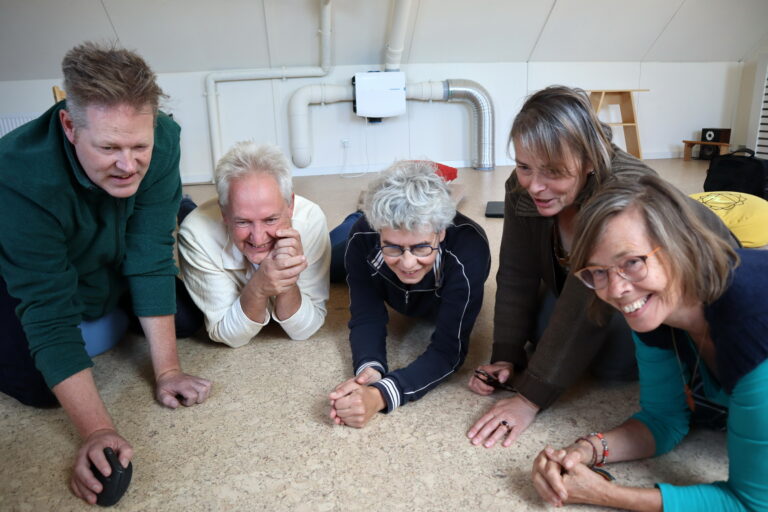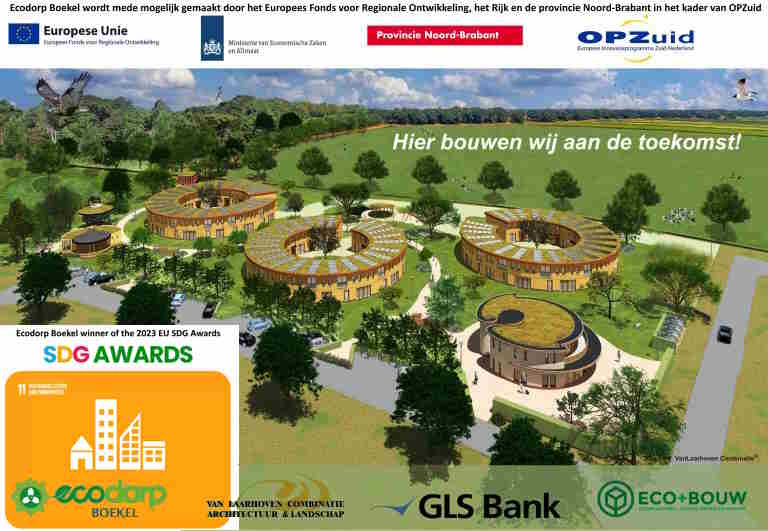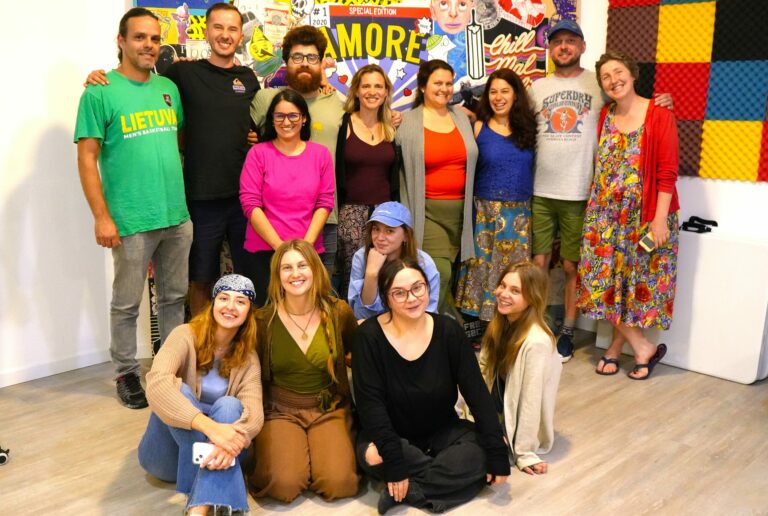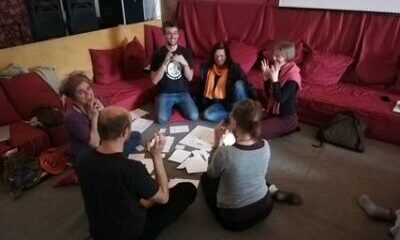Game-Changing Economies: YITEG Project Learning Seminar in Athens
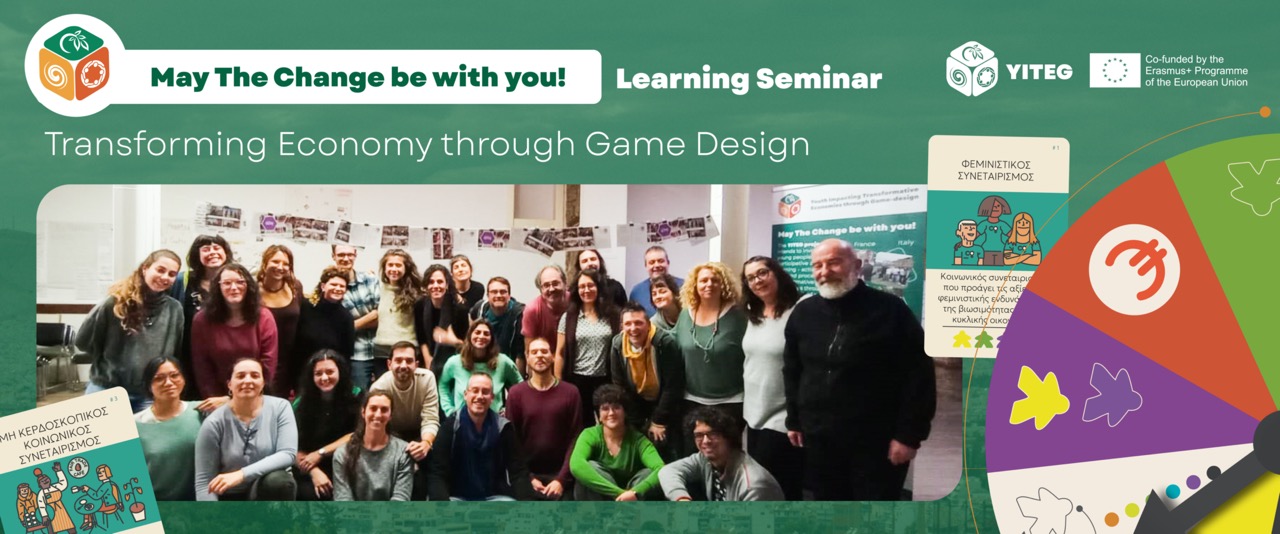
In August 2024, representatives of GEN Europe were invited by RIPESS Europe, a global network of continental networks committed to promoting the Social Solidarity Economy, to participate in the YITEG project Learning Seminar in Athens in November 2024. Another valuable opportunity to network, connect, research and… play a board game!
That’s what the YITEG project was all about: Youth Impacting Transformative Economies Through Game Design. YITEG is a two-year project funded by the European Union that intends to involve young people in a participative and learning-action-oriented process on Transformative Economies through the creation of a board game. The project consortium brought together 7 organisations (Idealudica, Kaleido’Scop, Nexes, NINFEA, RIPESS Europe, The Beehive Community, University Thessaloniki, Université Jean-Monnet-Saint-Étienne University) from 4 countries (Spain, Italy, Greece and France) which have joined forces to create a community of multipliers on the subject of Transformative Economies, at local and European levels.
At the learning seminar in Athens, we had an astounding opportunity to test the board game, share our own experiences and wisdom from across our ecovillage network and finally – disseminate the acquired knowledge!
This blog post is the first in the thematic series on Transformative Economies, so let’s start with the basics.
Understanding Transformative Economies
Transformative economies and social solidarity economy (SSE) represent a radical approach to economic organization that challenges traditional capitalist models. At their core, these concepts seek to create economic systems that prioritize human well-being, social justice, and ecological sustainability – principles fundamentally embedded in the ecovillage movement.
“By transformative economies, we understand all proposals for socioeconomic reorganization that bring elements of criticism of the dominant economic framework into play, and that formulate schemes for socioeconomic change – both in theory and in practice − that endeavour to alter this framework, and to prevent or alleviate the adverse effects generated by it.”
The key principles of Transformative Economies:
- Human-Centered Economy: Prioritizing People Over Profit
- Ecological Sustainability: Integrating economic activities with environmental stewardship
- Collaborative Governance: Democratic and Participatory Economic Decision-making
- Local Resilience: Developing self-sustaining local economic ecosystems
Examples of Transformative Economies
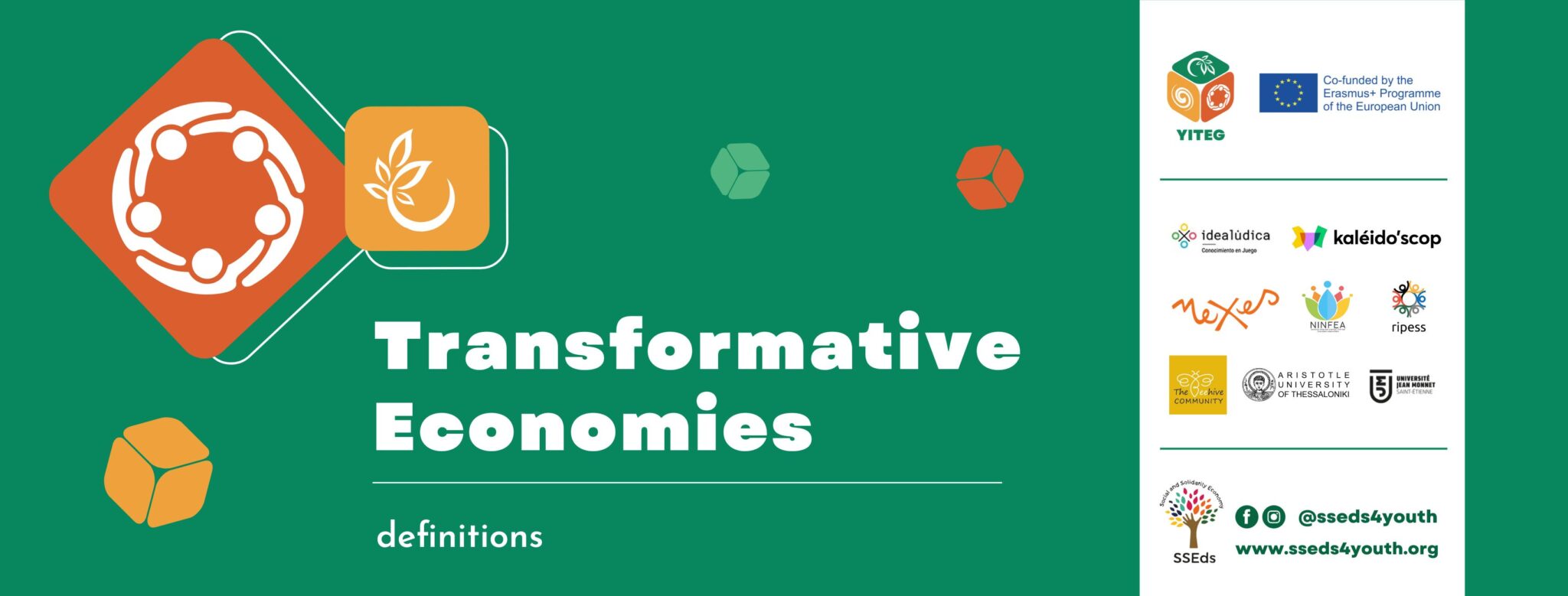
Although many different experiences could be grouped under the concept of Transformative Economies, the YITEG project focused on the following, as they consider them to be the most important for their contribution to social transformation: social and solidarity economy, commons, food sovereignty and agro-ecological practices, feminist economies, and communitarian economy.
- Social Solidarity Economy:
The Social Solidarity Economy proposes a system that is not only economic, but also socio-political and cultural, basing life-sustaining processes at the centre of socio-economic activity, placing people, communities and the environment above capital and its accumulation, and rejecting relations of inequality and exclusion based on gender, sexual orientation and identity, age or origin through values related, among others, to cooperation, reciprocity, self-management and solidarity.
2. Commons:
Economy based on the commons, with three major subgenera: urban, natural, and digital commons. The commons are based on community management, breaking the duality of the state market as the only clear and legitimate space for the production, management, and allocation of the resources of the economic system.
3. Agroecology and food sovereignty:
The agroecology and food sovereignty movements entail the reconsideration of our relationship with the Earth and the natural cycles and therefore connect all struggles in defence of the Earth with its own, most prominently those of social ecology and the likes of the degrowth movement.
4. Feminist Economies:
The neo-liberal system has constructed a mode of organization of society that develops/goes against the material bases which allow life to be sustained. Regarding this, feminist economics allow us to take an exercise in recognizing/into account something that capitalism has always denied:
- We are interdependent as human beings.
- We are interdependent with nature.
- The recognition of care work
5. Communitarian Economy:
The Communitarian Economy refers to all activities that are developed without depending on the state or the market, i.e., through self-management. In short, the main idea is to fulfil the function of ensuring the material bases of life without any economic benefit.
The main source of this subchapter is the Transformative Economies Blog , where you can read more about this topic.
Learning Seminar in Athens
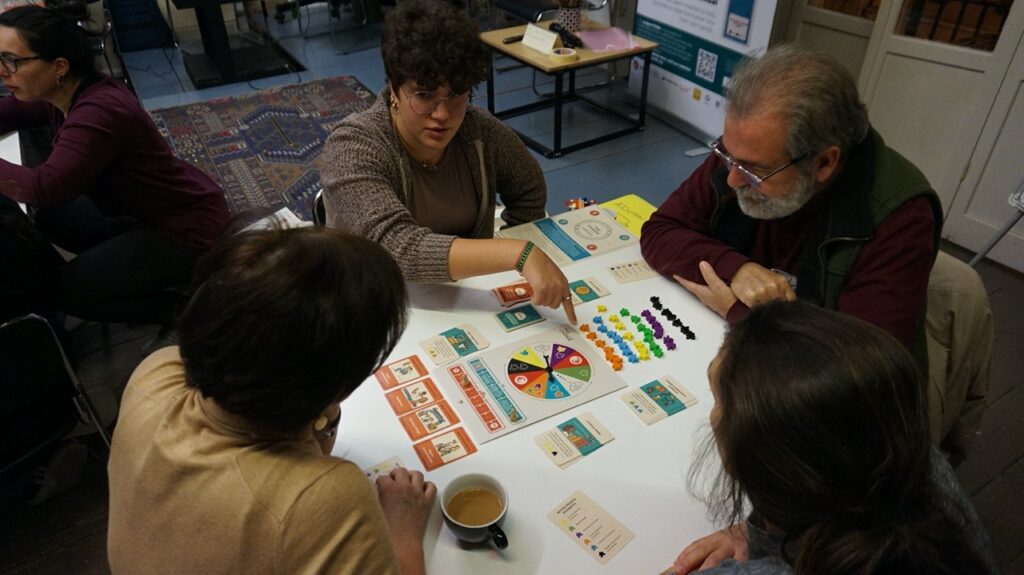
The two-day learning seminar in Athens focused on reclaiming economics from neoliberal ideology through collaborative visioning of communities built on cooperation and mutual support networks. Participants were introduced to essential resources, including a comprehensive game manual and a multimedia map showcasing real-world transformative economy initiatives from across participating countries. The centrepiece of the seminar was “The Change” – a board game available in six languages with both expert and junior versions – developed by young innovators from local groups. Through immersive gameplay, participants experienced a simulated economic reality where they could safely experiment with alternative approaches while developing crucial skills in problem-solving, critical thinking, and teamwork.
As one French participant reflected, “This experience reinforced my conviction that it’s possible, at your level, to make our society more human,” while a Greek participant praised the game as “a powerful tool to educate and promote good practices for a more sustainable future.” The game encouraged players to connect local realities with transnational perspectives, inspiring practical changes in daily routines. And while the YITEG project officially concludes in January 2025, its momentum continues through planned international webinars and ongoing community engagement in transformative economic practices!
What can Transformative Economies mean for Ecovillages?
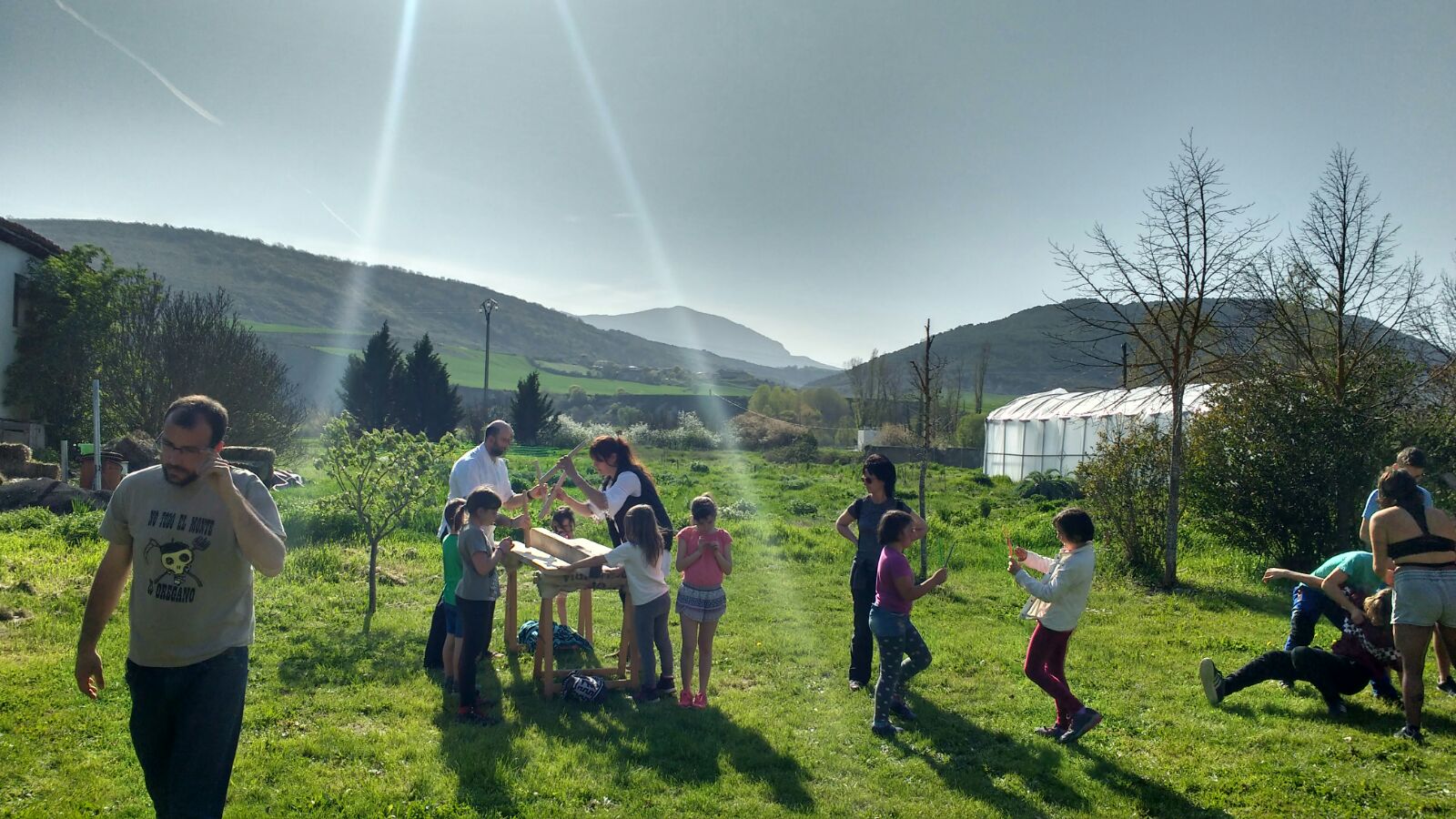
Ecovillages can be understood as Living Laboratories of Alternative Economies, as they embody transformative economic principles by:
- Creating circular economic models that minimize waste
- Implementing collaborative ownership and resource-sharing strategies
- Developing local currencies and exchange systems
- Prioritizing renewable energy and sustainable production
- Demonstrating alternative approaches to work, value, and community wealth
By just taking a glance at the Ecovillage Map of Regeneration, we can very well observe how the Cultural, Social, Economic and Ecological dimensions of the Map correspond to the core values of Transformative economies. Thus, the common efforts seem intertwined and may be deepened in the near future by distributing “The Change” game across ecovillages and playing it in various ecovillage events to further educate and broaden the concept of Transformative Economies and what it might mean in the context of Ecovillages.
In conclusion, the exploration of transformative economies through the YITEG project represents a critical pathway for:
- Developing innovative economic education tools
- Creating gamified learning experiences about alternative economic models
- Empowering youth to reimagine economic structures
- Bridging theoretical concepts with practical, playful learning approaches
Game on!
